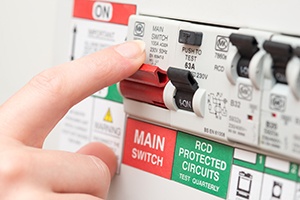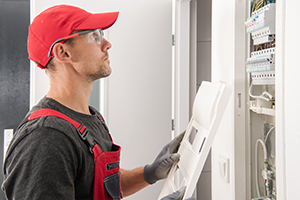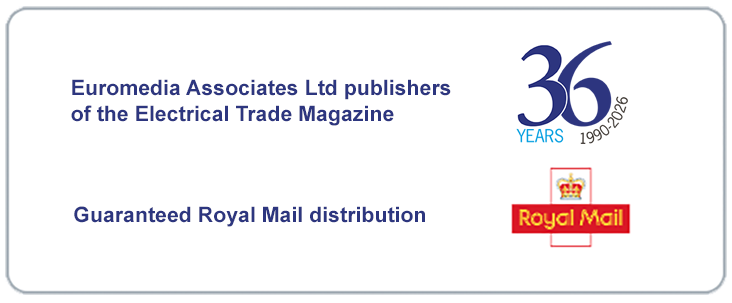Research commissioned by NICEIC finds that 46% of Brits dont know what a residual current device is and less than 20% know whether their home has one.
As summer approaches, the nation’s use of electrical outdoor appliances and gadgets will increase. But given recent research found 96 percent of garden electrical products fail safety tests due to substandard plugs, counterfeit fuses, and water ingress, your home’s Residual Current Device (RCD) could be lifesaving. But what is an RCD?

According to a new survey of 2,000 UK adults, commissioned by NICEIC – the UK’s leading certification body for the electrical industry – half of Brits don’t know, while only 16 percent of the public know if their home is fitted with one.
The survey results highlight a significant lack of knowledge about this vital home electrical safety device among both homeowners and renters.
RCDs are designed to automatically cut off power if an earth fault is detected in indoor and outdoor electrical circuits, helping to prevent electric shocks, fires, and potentially expensive damage. It is recommended that they are tested regularly by pressing the test button on the RCD every six months.
The data also reveals that young people (aged 25-34) are the most likely to say they know what a Residual Current Device is, with just 32 percent being unfamiliar with the device. 29 percent know their home has at least one RCD. By comparison, 52 percent of respondents aged 55 and over are unfamiliar and only 17 percent know if their home has RCDs installed.
Regionally, awareness is lowest in Northern Ireland and Wales, where half of respondents (50 percent) said they did not know what an RCD is. The Northwest follows closely behind at just over 49 percent, with the East of England at 48 percent.
At the other end of the scale, the Northeast has the highest awareness level, with only 35 percent unaware of the device, followed by Greater London (40 percent) and the East Midlands (41 percent).
At the city-level, Liverpool residents are the least aware, with 55 percent saying they don’t know what an RCD is. This was followed by Norwich (53 percent) and Cardiff (52 percent). However, Newcastle residents are the most aware, with just 35 percent unfamiliar with an RCD, followed by Nottingham (39 percent) and Edinburgh (40 percent).

There are also marked differences between homeowners and those privately renting. 49 percent of respondents living in private rental accommodation don’t know what an RCD is, compared to 44 percent of homeowners with a mortgage and 43 percent of homeowners without a mortgage.
This highlights the importance of renters understanding their home electrics to ensure they understand whether their landlord is complying with the latest safety regulations and maintaining electrical systems.
Paul Collins, Technical Director of the NICEIC, explains why Residual Current Devices are important…
“Whilst there are some regional differences when it comes to awareness of RCDs, the research does show that there is a lack of knowledge across the board.
“Because Residual Current Devices ensure that certain electrical faults are detected and power is quickly shut off, they play a crucial role in preventing electric shocks, fires, and other potentially life-threatening accidents.
“If you notice your RCD tripping repeatedly, it’s a clear sign that something is wrong, and your RCD has done its job – this should not be ignored. It indicates a fault that will require attention. Don’t take the risk of leaving it unchecked.
“RCDs are easy to test. Simply press the test button on your RCD every 6 months – this is a quick and simple way to make sure your RCD is working correctly.
“When you press the test button the RCD trips and the power is switched off. However, if the RCD doesn’t trip, it may indicate a problem, and you should contact a NICEIC-registered electrician to have it checked.
“It’s crucial that homeowners understand the importance of having a fully functioning RCD in place, and that any electrical work, including the installation or replacement of an RCD, should always be carried out by a NICEIC-registered electrician.
“If you’re unsure or uncomfortable testing your RCD yourself, a registered electrician can carry out a full safety check to ensure everything is functioning properly, giving you peace of mind.”
Visit niceic.com/find-a-tradesperson/ to find a NICEIC-registered electrician.






